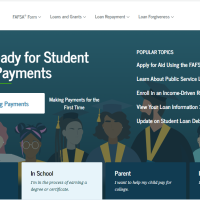In 2007, the Mortgage Forgiveness Debt Relief Act (MFDRA, H.R. 3648) was instituted to help homeowners struggling with their mortgages. This act provides homeowners losing their homes with certain protections from the tax penalties of forgiven debt. This is a helpful act for many Americans, because until MFDRA, homeowners in crisis faced huge financial consequences for getting out of a home they could no longer afford.
In the past, forgiven debt was typically considered unearned, taxable income. This meant that you may have had to pay taxes on the forgiven loan amount. Today, lenders will still send you a tax form called a 1099-C. That form details the fair market value of the home amount and the amount of that debt that was forgiven. However, from now until December 31, 2012, you may not have to pay the taxes on that forgiven mortgage debt.
When is Debt Forgiven
There are many situations that can result in part of your mortgage debt being forgiven by the creditor. These include:
- Short sales – when the proceeds from the sale of a home are less than what you owe.
- Home loan write-downs - when the lender works with the homeowner and agrees to accept less than the full principal balance of a loan. This typically occurs when the lender recognizes it will not collect the full balance owed on the mortgage. An additional factor may be that the value of the home is now much less than it was when originally purchased (due to the fall of the housing market).
- Mortgage foreclosures – The lender takes possession of the home due to non-payment of the mortgage. The homeowner loses all rights to the home and property.
Mortgage Forgiveness Debt Relief Act
Under the MFDRA, you may be able to exclude up to $2 million in forgiven mortgage debt on your taxes. If you are married, but filing separately that amount drops to $1 million – still probably enough to ensure you will not have to pay taxes on the forgiven debt. This amount applies to debt forgiven in a short sale, a home loan write-down, or a foreclosure.
The Mortgage Forgiveness Debt Relief Act only applies to your primary home. In addition, the original money borrowed could have been for purchasing, building, or improving your primary residence. Debt forgiven on second homes, rental property, business property, credit cards, or car loans does not qualify for the tax relief provision. IRS Form 982 provides more details about these provisions.[1]
To claim the tax relief on the forgiven debt, you must complete the IRS Form 982 and include it with your Federal tax return. If you failed to take the tax credit in a previous year when you were eligible (2007 – 2010), you may file an amended return with the IRS. The form includes more details about qualifications for the program.
For more information about other types of debt forgiveness, see our article Debt Forgiveness[b1] in the Resources section of our web site. If you need help managing your finances, contact American Financial Solutions. We are a non-profit credit counseling agency with certified credit counselors who are always ready to lend an ear and help you successfully overcome your financial obstacles. You can contact a credit counselor by calling the number at the top of your screen or by clicking the Get Started Now button.
[1] IRS. February 2011. Reduction of Tax Attributes Due to Discharge of Indebtedness. Department of the Treasury, Internal Revenue Service. Retrieved from: http://www.irs.gov/pub/irs-pdf/f982.pdf
[b1] Please see our article titled The Reality of Debt Forgiveness for more information on other types of debt forgiveness.




